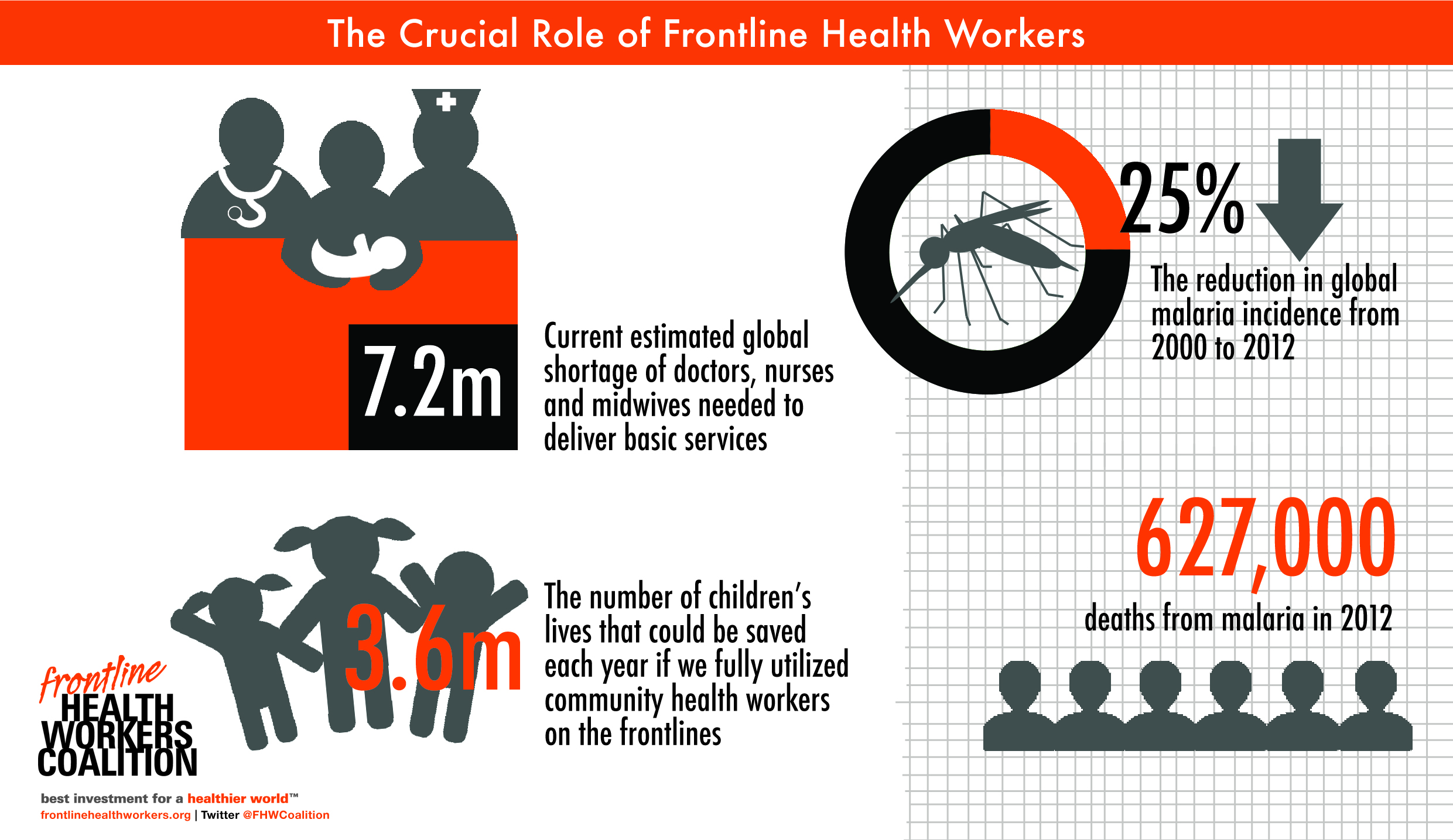Happy World Malaria Day 2014!

The motto for this year’s World Malaria Day celebration is “Invest in the future: defeat malaria.” This themed day is meant to emphasize the importance of achieving the health-related Millennium Development Goals (MDGs), and the eradication of malaria is central in this step. We, the One Million Community Health Workers Campaign team, want to also draw attention to every level of the health workforce that is on the frontline in the fight against malaria, especially the contributions of Community Health Workers (CHWs).
Recent data show that malaria causes an estimated 627,000 deaths per year, with the highest occurrence amongst African youth. CHWs can address this life-threatening disease in many ways. Services that CHWs can provide to households include:
- Community education
- Distribution of insecticide-treated bed nets
- Assisting with community vector control (ex: draining sources of stagnant water)
- Early detection of potential cases of malaria
(identifying children with fevers and giving them a rapid diagnostic test) - Supplying anti-malarial treatment
- Referring patients with severe cases to health facilities
Check out this video to see how a CHW tests a child for malaria!
Numerous studies have shown the efficacy of CHWs in the above interventions, particularly in household-level malaria diagnosis and providing the appropriate treatment. This is even more important given the emergence of a renewed focus on integrated community case management (iCCM). Evidence has shown that CHWs have achieved clinical cures in up to 98% of childhood cases and adherence to medication treatment in 83% of patients. These numbers say it all—CHWs are a powerful force in the fight against malaria.
CHWs can also be extremely valuable in educating communities about the warning signs and threats of this deadly disease. During household visits and community meetings, CHWs educate their communities about effective preventative measures and spotting early symptoms of malaria. This ultimately leads to increased health-seeking behavior from the families that CHWs serve, which lowers the rate of avoidable deaths.
Ethiopia’s Health Extension Program (HEP) is one example of using CHWs, at large scale, for effective malaria control. The HEP deploys about 34,000 Health Extension Workers (HEWs) to educate communities on preventative measures, identifying children with malarial fevers, and administering treatments – in addition to their interventions against other diseases. This approach has been extremely successful: In the 13 years since the HEP roll-out, the prevalence of malaria has decreased by at least 50%.
World Malaria Day is a chance for CHW supporters, as well as everyone involved in the fight against malaria, to refocus our efforts against this both preventable and curable disease. Much of the literature published in the last year on the topic has emphasized the importance of CHWs in both educating communities and delivering preventative and curative care for malaria. Investing in CHWs is crucial to controlling (and ultimately, eradicating) this disease and achieving the health-related MDGs by their 2015 expiration date – and beyond.
Follow the conversation at #WMD2014 or #worldmalariaday
Photo Courtesy of Frontline Health Workers Coalition

Comments are closed